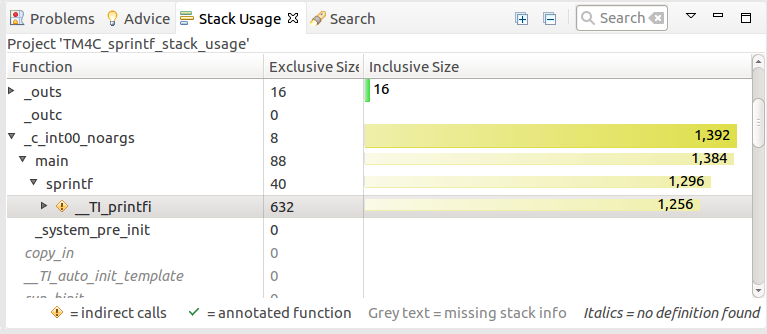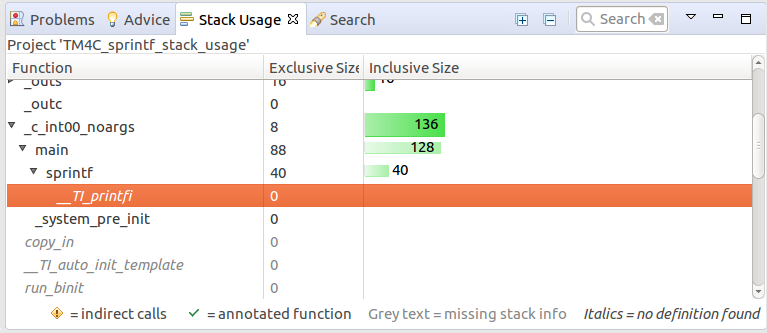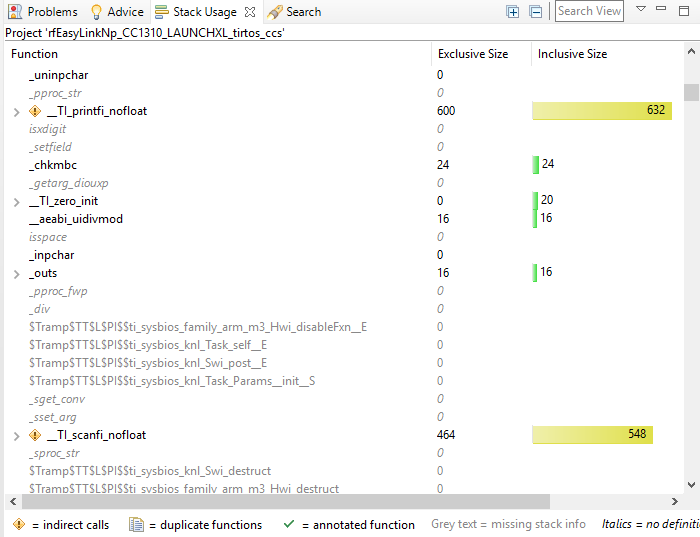Tool/software: Code Composer Studio
With '--printf_support full' View->Stack usage displays values for __TI_printfi (called from vsnprintf).
Switching to '--printf_support nofloat` removes stack usage information from __TI_printfi.
With huge stack usage in __TI_printfi, it is a bit annoying
Is there some way to fix this? I can annotate __TI_printfi, estimating from full version, but it is a bit tedious.
Regards,
Petr




